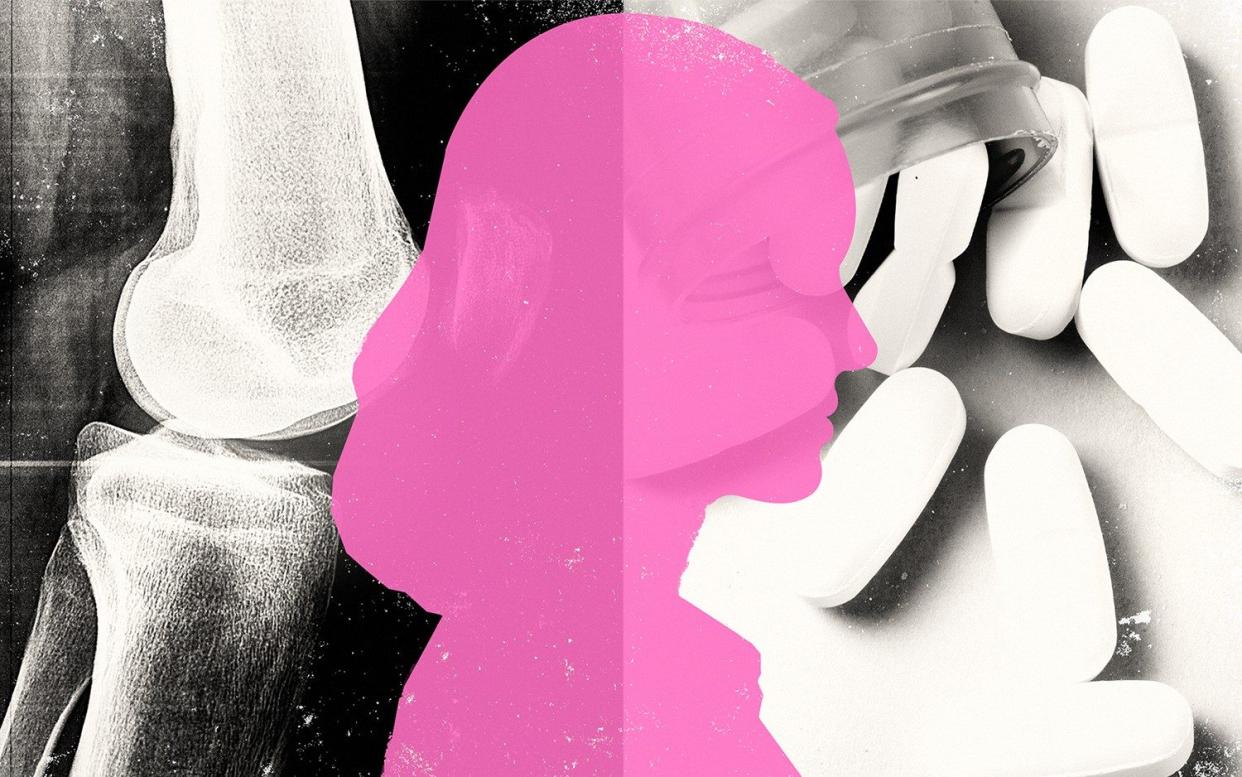HRT and having four or more children increase risk of rheumatoid arthritis, study finds

Hormone replacement therapy (HRT) and having four or more children are linked to an increased risk of developing rheumatoid arthritis, researchers have found.
Early menopause, starting menstruation at 14 or older and having one or both ovaries removed were all also linked with an increased risk, an analysis of almost a quarter of a million women in Britain has found.
Women are around three times more likely than men to develop rheumatoid arthritis, which is a “debilitating” autoimmune condition where the immune system attacks the body’s own joints and requires “urgent, intensive treatment”, experts say.
It affects more than 450,000 people in the UK, compared with the more common osteoarthritis, which affects 10 million people, according to the charity Versus Arthritis.
While the onset of the condition has previously been linked to changes in hormones such as oestrogen and progesterone, the researchers wanted to find out which factors were most influential.
They found that women taking HRT were 46 per cent more likely to develop rheumatoid arthritis than those who were not, while those who started their menopause “early” – under 45 years old – were also at 46 per cent greater risk than those going through it at 50-51 years old.
‘Adversely affect joint health’
Experts noted the “paradoxical” nature of these findings given that HRT is used to treat the menopause by replacing the oestrogen lost, but suggested that taking hormone therapy may change other hormone levels in the body and “adversely affect joint health”. There are around 2.3 million women taking HRT in England.
Dr Louise Newson, a GP and menopause specialist, said the study “uses older data” and was likely to include “women prescribed older, synthetic types of HRT, rather than the natural body-identical hormones that we prescribe nowadays”.
Women who had undergone a hysterectomy or had one or both ovaries removed were at 40 per cent and 21 per cent higher risk respectively. These procedures can cause “surgically induced menopause”.
Mothers with four or more children, compared with those who had two, were 18 per cent more likely to develop the condition, while women who had less than 33 reproductive years – the time between their first period and onset of the menopause – were at 39 per cent greater risk than those with more.
Starting periods after the age of 14 was associated with a 17 per cent higher risk when compared with starting them at the age of 13.
There was no clear link to taking the contraceptive pill.
Dr Benjamin Ellis, the senior clinical policy adviser at Versus Arthritis and a consultant rheumatologist, said that inherent differences between men’s and women’s genes “may explain some of the differences in immune system diseases” and that female hormones such as oestrogen “were important in regulating the immune system”.
He said the condition occurs when the immune system “goes out of balance and attacks the joints, causing pain, swelling and inflammation”.
“People with rheumatoid arthritis will need urgent, intensive treatment to control and rebalance the immune system and to prevent lifelong pain and disability,” Dr Ellis said. “A deeper knowledge of why the immune system goes wrong in the first place will help scientists develop more effective and safer treatment for this debilitating condition.
“In the meantime, any change in the risk of rheumatoid arthritis is unlikely to be a main factor in whether or not to take HRT, which is always an individual decision based on many different factors,” he added.
Dr Newson said the study “should not be a cause of concern for women” and that it did not establish “cause and effect”.
“We have known for decades that our natural sex hormones oestradiol – the main type of oestrogen – and progesterone, which decline during menopause, are anti-inflammatory,” she said.
“Women who go through an earlier menopause are without these natural hormones for longer and are therefore at greater risk of inflammation and autoimmune diseases.”
‘Benefits of HRT still outweigh risks’
The use of HRT was the subject of controversy when a 2002 study found it increased the risk of breast cancer, but this was later found to overstate the danger.
While it is still accepted that there is an associated risk, for the majority of menopausal women the benefits continue to outweigh the risks, and serious side effects are considered rare.
Other research has suggested that HRT may improve symptoms of the more common osteoarthritis, which is caused by age and wear and tear, rather than the immune system.
In recent years, uptake has increased significantly, with 2.3 million women taking HRT in 2021-22, up from 1.48 million in 2019-20.
The NHS advises people to contact their GP if they have symptoms of rheumatoid arthritis, such as unexplained joint pain, stiffness, or swelling. While there is no cure, there are drugs to slow its progression and manage symptoms, as well as physiotherapy and surgery to improve joint movement.
Researchers from the Anhui Medical University School of Public Health in China analysed 223,526 women from the UK Biobank over 12 years, during which time 3,313, or 1.5 per cent, developed rheumatoid arthritis.
The study is published in the journal RMD Open.

